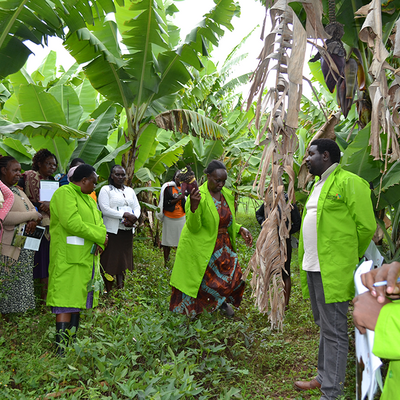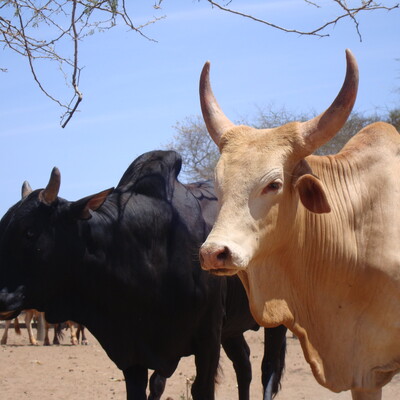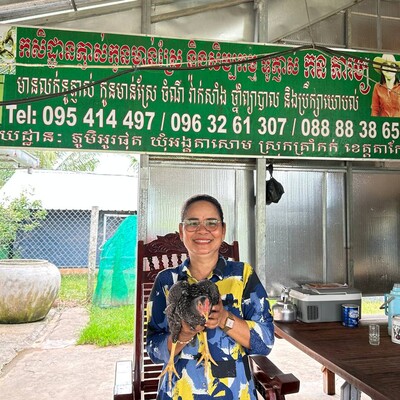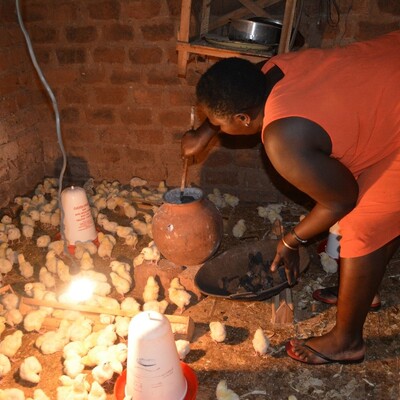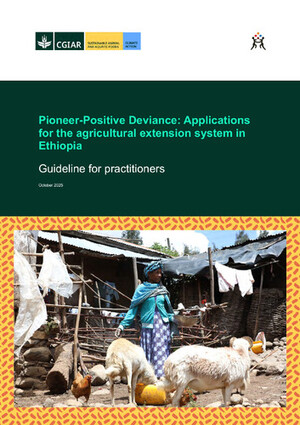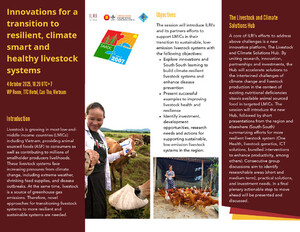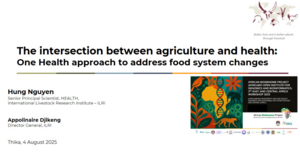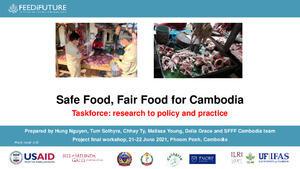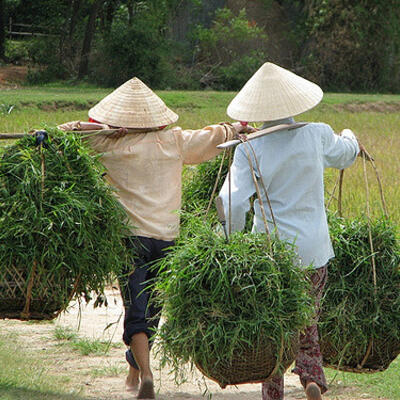
US ambassador to Mali visits communities in Sikasso region supported by an ILRI-led livestock technology scaling project
Written by Assoumane Maiga
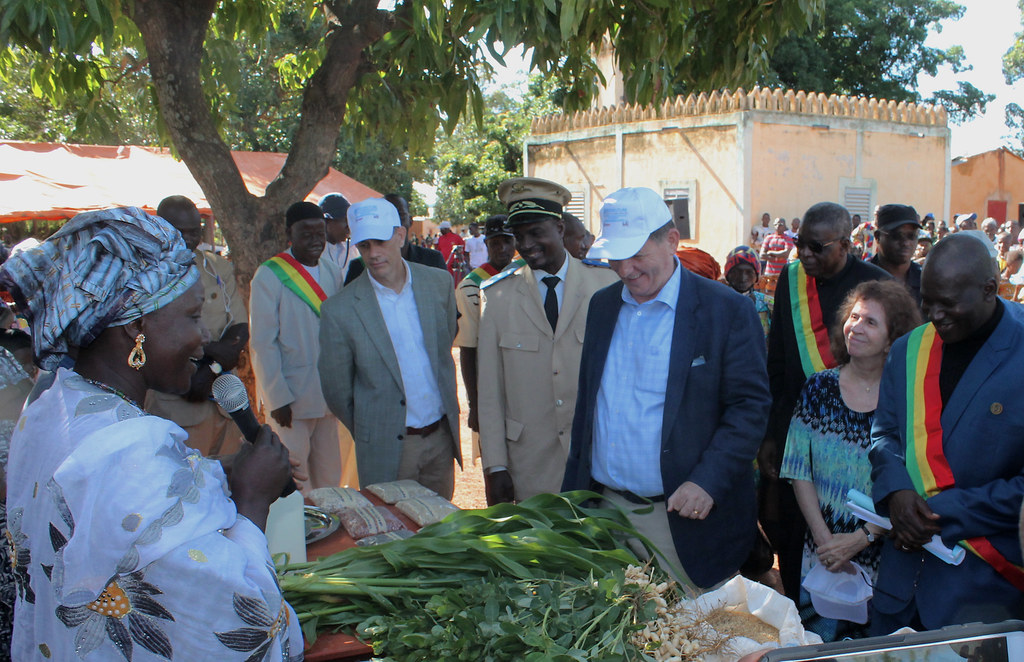
Aoussata Coulibaly (left) talking to Dennis Haskins, US Ambassador to Mali (in dark jacket) and his delegation about business and job opportunities created by the Feed the Future Mali Livestock Technology Scaling Program (photo credit: ILRI/Amadou Nouh Saw).
On 25 July 2019, the US ambassador to Mali, Dennis Hankins, visited Ifola village in Sikasso, Mali, to meet communities supported by the International Livestock Research Institute (ILRI)-led Feed the Future Mali Livestock Technology Scaling Program (FtF MLTSP).
The visit by ambassador Hankins reviewed the program’s achievements in the region and was an opportunity for him and his delegation to hear from the livestock keepers and farmers who have benefitted from the project. He was accompanied by Anne Williams, interim director of the United States Agency for International Development (USAID) in Mali, and welcomed by the mayor of Farakala, Baber Sanogo.
The ambassador interacted with, and heard from, beneficiaries and the local authorities on FtF MLTSP activities on animal health, livestock fattening and forage production. The farmers also shared the benefits they are gaining from improved access to credit and markets and the involvement of women and young people in development activities.
The USAID-supported Mali Livestock Technology Scaling Project works to improve food and nutrition security and increase incomes of 61,000 smallholder ruminant livestock producers in the country. Mayor Sanogo said the project has brought tangible solutions to problems in the region. He noted that the knowledge gained by farmers participating in the project is helping them earn more income from their farms and livestock.
More than 400 people including women and young people participated in the event. Ambassador Hankins praised the understanding and determination of the people of Farakala, especially in Ifola. ‘I see that there is harmony and peace in Ifola and there is more food, including milk, as a result of your working with this project.’
‘The technologies selected and adapted by the livestock technology scaling program and the use of best practices in animal health are helping to reduce losses due to animal diseases—estimated at CFA200 billion (USD340,000,000) per year—and to reduce the food deficit in the country,’ said Abdou Fall, the FtF MLTSP chief of party.
Some of the technologies and achievements witnessed by the ambassador and his delegation included a variety of forage crops (including pure forage crops Mucuna and Brachiaria and dual-purposes crop such as sweet sorghum and cowpea), small ruminants and bovines fattening workshops and women’s small manufacturing unit of multi-nutrient feed blocks. Praising the many positive transformations led by the project that have improved food security in the region, mayor Sanogo said ‘the dreams of the people of Farakala are coming true’.
Read a related ILRI News article: United States and Mali launch five-year partnership for food security and livelihood resilience
Assoumane Maiga is a communication officer working with ILRI in Mali.






